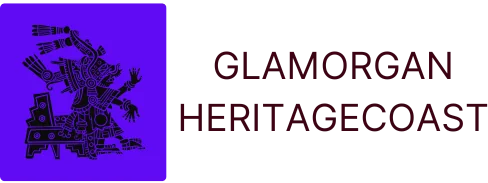In today’s fast-paced world, who has time to sit in a waiting room flipping through outdated magazines? Enter mobile apps for healthcare, the superheroes of the digital age. These nifty tools are transforming how people manage their health, making it easier to consult a doctor, track fitness goals, or even remember to take those pesky vitamins.
Imagine having a personal health assistant right in your pocket, ready to help at a moment’s notice. With a tap or swipe, users can access a wealth of information and services that were once confined to the doctor’s office. So why not trade in the waiting room for a little app magic? The future of healthcare is not just bright; it’s convenient, engaging, and just a download away.
Table of Contents
ToggleOverview of Mobile Apps for Healthcare
Mobile apps significantly enhance healthcare delivery and management. Numerous applications exist for various purposes, catering to diverse needs of patients and providers. These tools streamline communication between doctors and patients, allowing for real-time consultations and advice. Users can easily track their health metrics through fitness and wellness applications that promote healthier lifestyles.
Medication management apps stand out by sending reminders for doses, ensuring adherence to prescribed regimens. Telehealth platforms provide access to healthcare professionals without geographical barriers, enabling consultations from home or work. Educational apps equip users with valuable information on medical conditions, symptoms, and treatments, encouraging informed decision-making.
Security is a crucial aspect, and many applications employ robust encryption to protect sensitive health data. Integration with wearable technology enhances monitoring of vital signs, facilitating continuous health assessment. A growing number of mobile apps utilize artificial intelligence to provide personalized recommendations, significantly contributing to individualized care and wellness plans.
Affordability also attracts users as many applications offer free features or subscription models. Regulatory bodies increasingly recognize the importance of these tools, leading to the development of guidelines that ensure app safety and efficacy. The healthcare landscape continues to evolve thanks to mobile apps, marking a shift towards patient-centered care and accessibility.
Benefits of Mobile Apps in Healthcare
Mobile apps significantly improve healthcare experiences for both patients and providers. By leveraging technology, these applications foster better health outcomes and streamline management processes.
Improved Patient Engagement
Mobile apps empower patients to take charge of their health. They provide easy access to personal health data, enabling individuals to track progress toward fitness goals and manage their wellness proactively. Notifications for medication reminders keep users on schedule, while educational content helps them understand medical conditions thoroughly. Engaging features like gamification encourage regular usage, fostering habits that lead to improved health. Additionally, users can set personalized goals and receive tailored feedback, creating a more interactive health journey.
Enhanced Communication Between Patients and Providers
Communication thrives with mobile apps in healthcare. Patients can conveniently connect with their healthcare providers through secure messaging, eliminating the need for lengthy phone calls. Real-time consultations are possible, allowing immediate feedback and guidance. Medical history sharing takes place seamlessly, providing physicians with comprehensive insights into patient conditions. Moreover, healthcare apps facilitate appointment scheduling and follow-ups, ensuring timely care. By bridging the gap between patients and providers, these tools enhance collaboration, leading to more effective treatment and satisfaction.
Popular Mobile Apps for Healthcare
Mobile apps are revolutionizing healthcare delivery and management. These applications cater to various patient needs and enhance communication between patients and providers.
Telemedicine Apps
Telemedicine apps enable virtual consultations, allowing users to meet healthcare providers remotely. Providers can conduct video calls or chat sessions for immediate advice. Notable examples include Teladoc and Amwell, which offer users access to a range of specialists. Users appreciate the convenience of scheduling appointments at home or work. These platforms significantly reduce wait times, making healthcare more efficient. Accessibility greatly improves for those in underserved areas, bridging geographical gaps. Costs often remain lower compared to traditional visits, promoting affordability in healthcare access.
Medication Management Apps
Medication management apps support users in adhering to prescribed treatments. Apps like Medisafe and MyTherapy excel at sending reminders for medication doses. Users can log their medications, track doses, and even receive refill alerts when supplies run low. Additional features include interactive calendars to visualize adherence and health reports detailed by schedules. These applications enhance user accountability and promote health literacy by educating users about their medications. Patients experience the improvement of health outcomes through better adherence, contributing to overall wellbeing.
Challenges and Considerations
Mobile apps in healthcare face several challenges that impact their effectiveness. Addressing these challenges ensures better health outcomes and user satisfaction.
Data Privacy and Security
Data privacy concerns top the list for healthcare mobile apps. Ensuring sensitive patient information stays secure remains crucial. Many apps utilize strong encryption methods to protect user data. Regulatory guidelines strive to help maintain safety and privacy standards. Consequently, users need to feel confident sharing personal health information within these applications. Enhanced secures protocols bolster trust and encourage wider adoption among patients. Securing medical data against breaches enhances app credibility and user confidence.
User Adoption and Accessibility
User adoption presents a significant challenge for healthcare apps. Diverse populations may lack familiarity with technology, creating barriers to access. Empowering users with intuitive designs and clear instructions improves engagement and utilization. Ensuring compatibility with various devices expands accessibility for different demographics. Moreover, offering apps in multiple languages caters to broader audiences. A user-friendly approach emphasizes inclusivity and meets the needs of all potential users. Addressing accessibility concerns fosters a more equitable healthcare landscape.
Future Trends in Mobile Healthcare Apps
Emerging technologies shape the future of mobile healthcare apps, driving innovation and improving patient care. Artificial intelligence leads this transformation, providing personalized recommendations based on user data. Increased use of machine learning enhances predictive analytics, enabling proactive health management.
Wearable technology integration continues to evolve, allowing real-time data collection for continuous monitoring. Smartwatches and fitness trackers collect information, such as heart rates and activity levels, syncing seamlessly with health apps. This integration supports users in tracking their fitness goals effectively.
Telemedicine’s growth further signifies a shift toward virtual consultations. Increased demand for remote healthcare services means more apps will include video conferencing features. Patients benefit from convenience as these consultations eliminate geographical barriers and long wait times.
Blockchain technology gains traction in securing healthcare data, ensuring transparency and enhancing privacy. Its decentralized nature offers an extra layer of protection for patient information. Reliability and security remain top priorities as users seek assurance about their health data’s confidentiality.
User experience design increasingly focuses on accessibility and engagement. Apps with intuitive interfaces and personalized features enhance usability for diverse populations. Multilingual support and educational content ensure that users from various backgrounds can effectively navigate the apps.
Overall, the ongoing evolution of mobile healthcare apps promises to improve patient experiences through advanced technologies, enhanced security measures, and user-friendly designs. With each innovation, the healthcare landscape evolves, contributing to a healthier future.
Conclusion
Mobile apps are transforming the healthcare landscape by making health management more accessible and engaging. They empower patients to take control of their health through features like medication reminders and telehealth consultations. Enhanced communication between patients and providers fosters collaboration and improves treatment outcomes.
As technology continues to advance, the integration of AI and wearable devices will further enhance the capabilities of these apps. The focus on security and user-friendly design ensures that a wider audience can benefit from these innovations. With ongoing developments, mobile healthcare apps are set to play a pivotal role in creating a healthier future for everyone.










